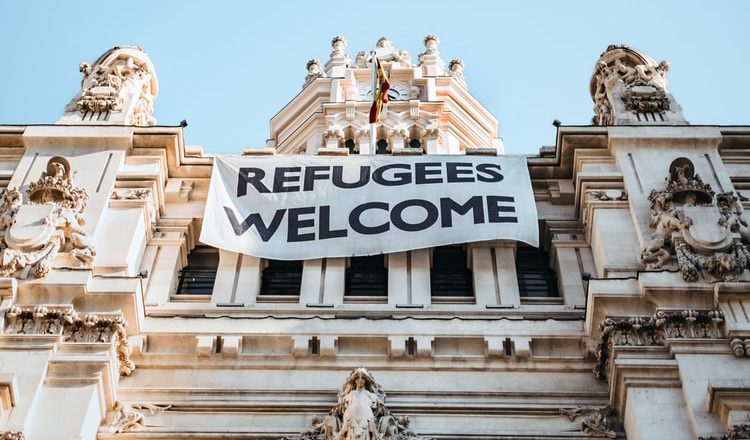
Australia’s Federal Budget was greeted with great inquisitiveness this year because of the COVID-19 pandemic. Last year witnessed the loss of hope and opportunity for millions of people, but Australia emerged relatively less scathed from the adversities than the rest of the world.
Consequently, Treasurer John Frydenberg’s budget speech last month began boastfully, with claims of bringing down unemployment despite the recession and increased funding for various sectors, including aged care, child care, tourism, and infrastructure.
There are a plethora of promises for the future of all, except one segment—refugees and people seeking asylum.
Every year, there are high hopes that the budget will usher in new policies for this neglected section of Australian society so that they too can begin to secure their inalienable rights to a decent life. Unfortunately, the 2021-22 budget appears to forecast another bleak 12 months for refugees, immigration detainees and people seeking asylum in Australia. The newly introduced policies fall short in bringing relief from a life of seemingly eternal frustration and uncertainty, with resettlement places capped at 13,750, and funds allocated for immigration detention showing a significant rise.
Before the Covid outbreak in 2020, Australia’s Humanitarian Program arranged for the resettlement of 18,750 refugees each year. That number dropped by almost 5,000 places last year due to the restrictions on movement and the latest budget plans to continue with the reduced ceiling until 2024-25.
Daunting Detention
The cap imposed on the number of refugees is introduced alongside the allotment of $464.7 million for increasing the capacity of the immigration detention network on the Australian mainland and Christmas Island. This decision can be interpreted as the government’s intention to strengthen the firewall against ‘the outsiders.’
The allocation of $1.2 billion to the Department of Home Affairs for onshore detention also includes packages to assist people in returning to their countries of origin. As per the statistics provided by the Federal Government, there were 1,527 people held in immigration detention facilities as of 28 February 2021. The latest budget indicated that this number would reduce as a measure against the challenges involved in deporting people while border restrictions are in place and once more raises questions about the issue of indefinite detention.
Arbitrary Asylum
Contrary to the fiscal generosity granted to detention centres, the funds provided to Status Resolution Support Services (SRSS), which financially support people seeking asylum, was only $35.1 million this year, and are estimated to drop to just $33.3 million next year. This is a stark decline compared to 2017-18, when the SRSS budget was as high as $138.9 million.
There are thousands of people seeking asylum trapped in legal limbo who still see no possibility of timely assessment of their claims for protection. Once again, the politics surrounding ‘boat people’ has taken precedence over international law and our fundamental obligation to help any person who seeks asylum under the fear of persecution or other human rights abuses.
Battling the Backlog
But there is one welcome step for refugees in this year’s budget—the government’s decision to pledge $54.8 million to address the backlog of cases managed by the Migration and Refugee Division (MRD). While more than 89,000 migration cases were reported to be pending as of April 2021, the clearance rate for refugee cases was only 47%. Since there were no refugee lodgements last year, it is an opportunity for the MRD to reduce the backlog and resolve the cases that have been pending for years.
Is there any hope?
An expansion in the pathways for the admission of refugees would be beneficial for the thousands of displaced people who are the recipients of Australia’s stringent asylum policies. Unfortunately, this seems out of reach for the next 12 months at least. However, although the budget offered limited reforms for refugees and asylum seekers, there is still an excellent opportunity for the government to provide aid for displaced people facing the double brunt of statelessness and the pandemic.
The Refugee Council of Australia recently charted various measures that the government can adopt to address the pressing needs of refugees, including more medical and financial aid for people in detention centres, increased flexibility within the current visa system so that every refugee has access to fundamental rights and entitlements, and the fair and urgent resolution of the cases of people stuck in Nauru and PNG.
It is undeniable that Australia cannot operate without migrants, and that refugees contribute significantly to the social, economic and cultural diversity of the communities where they settle. This year’s budget intends to refuel and recover the country by investing billions of dollars in the pandemic-hit economy, indicating an upward trend in the demand for labour as well. Studies show that refugees can benefit the economy by making significant contributions over time and with our borders closed indefinitely, it would be illogical not to embrace the economic opportunity offered by refugees and welcome them into our communities.
Furthermore, if Australia chooses to continue with its principles of draconian deterrence and indefinite detention, it will be another blow to the humanitarian cause that it advocates internationally. It is high time that we understand and accept our responsibility as a prosperous nation to protect people who instil their faith in us.


